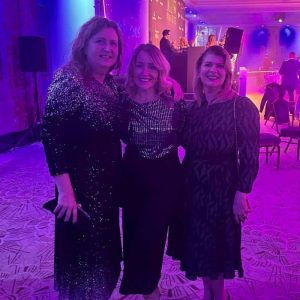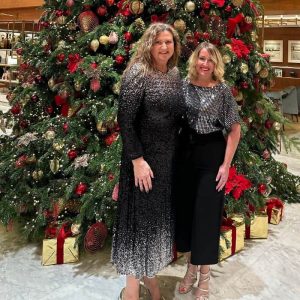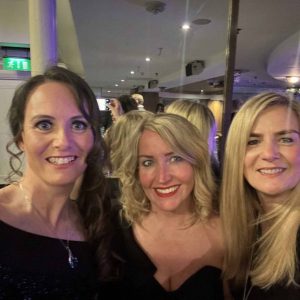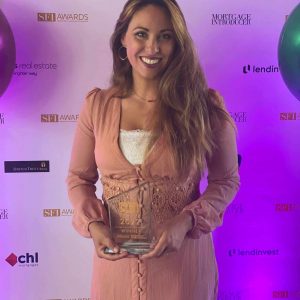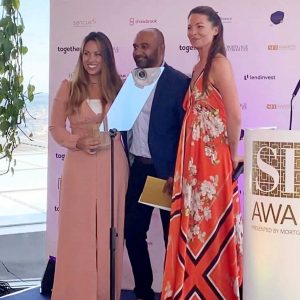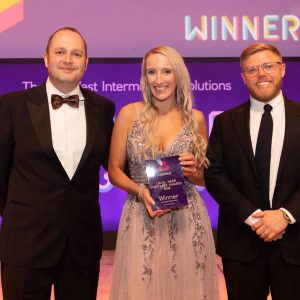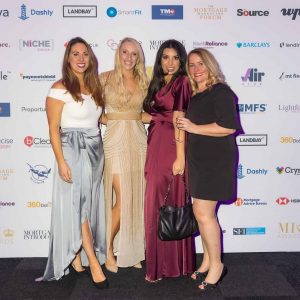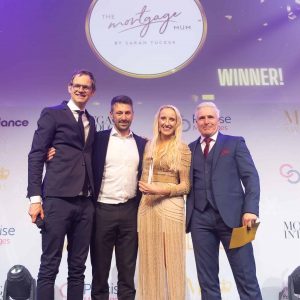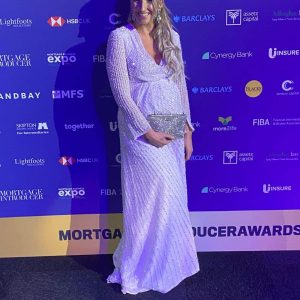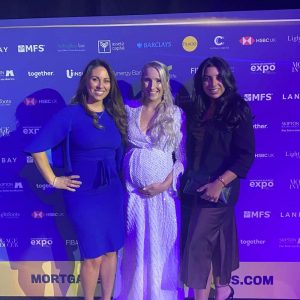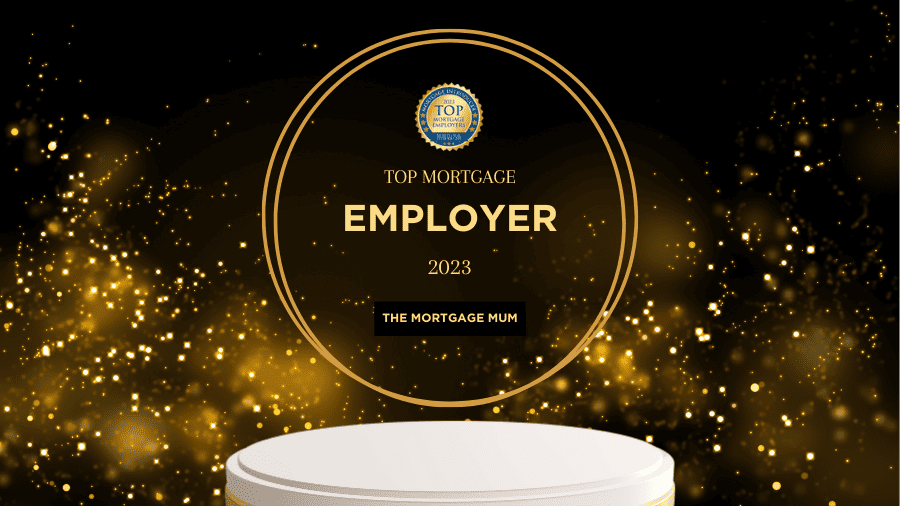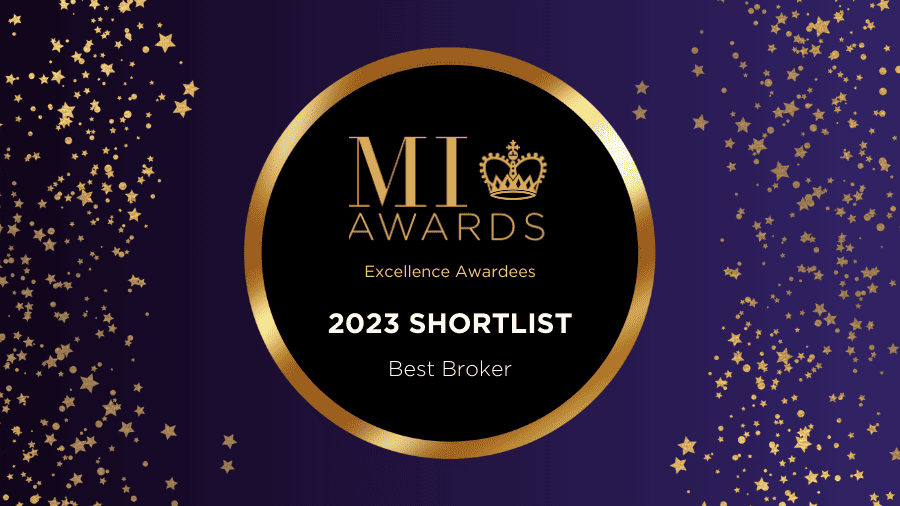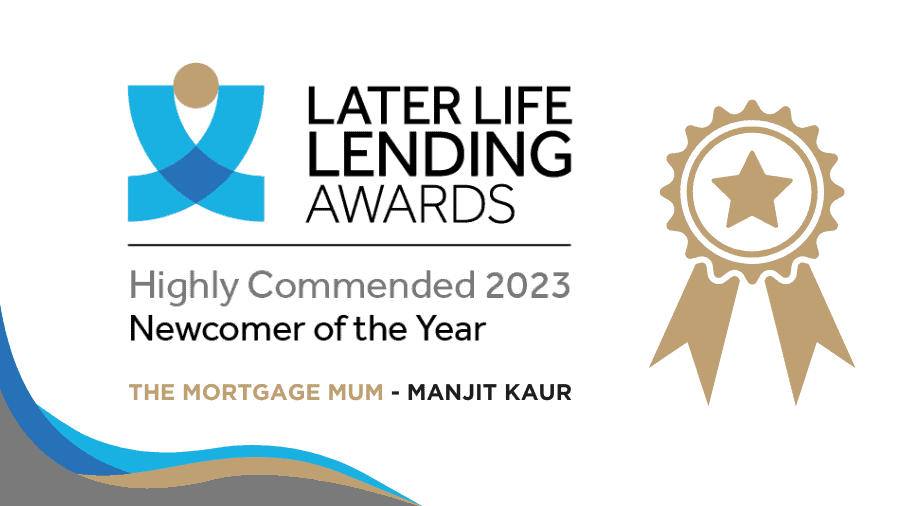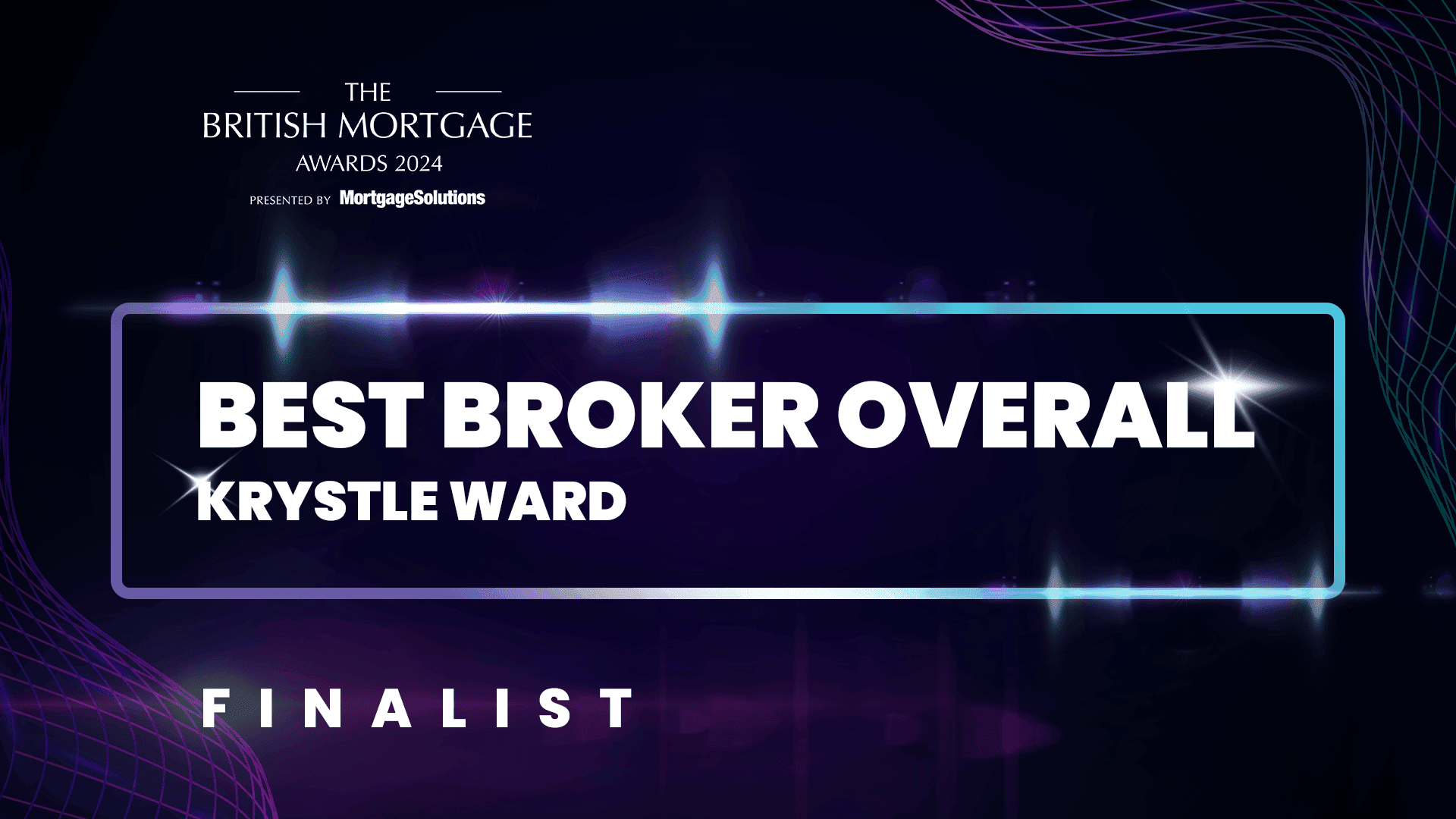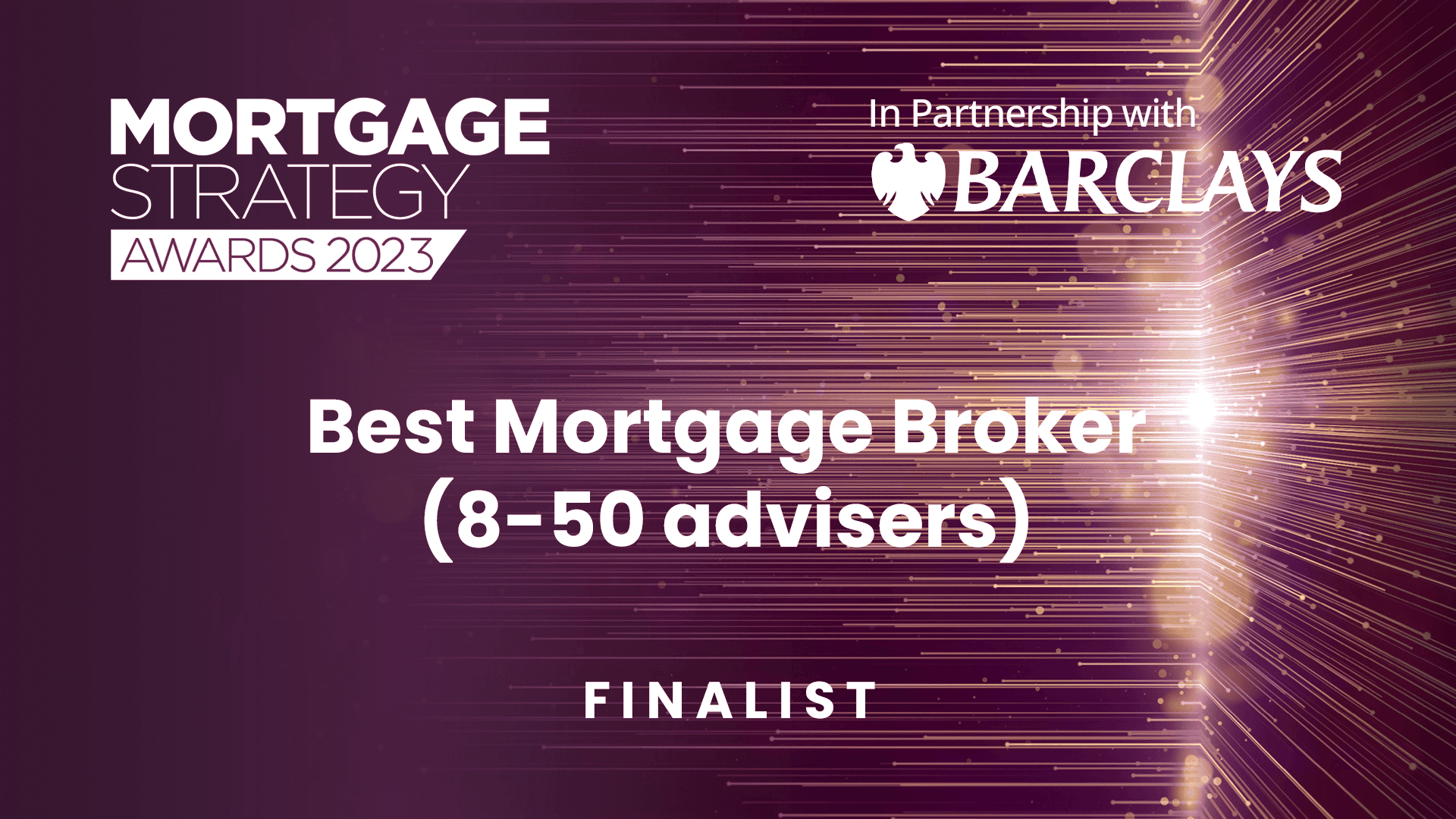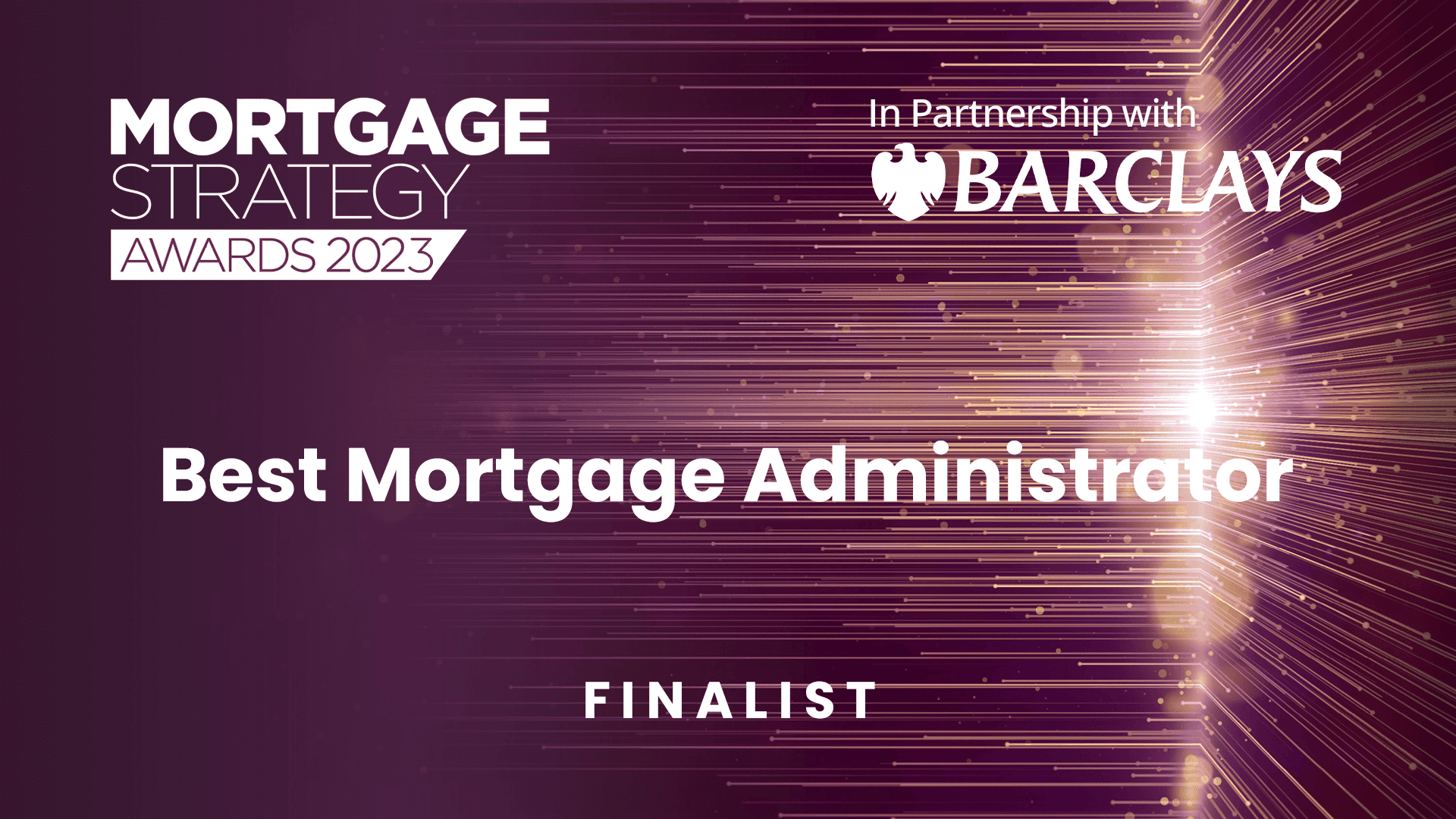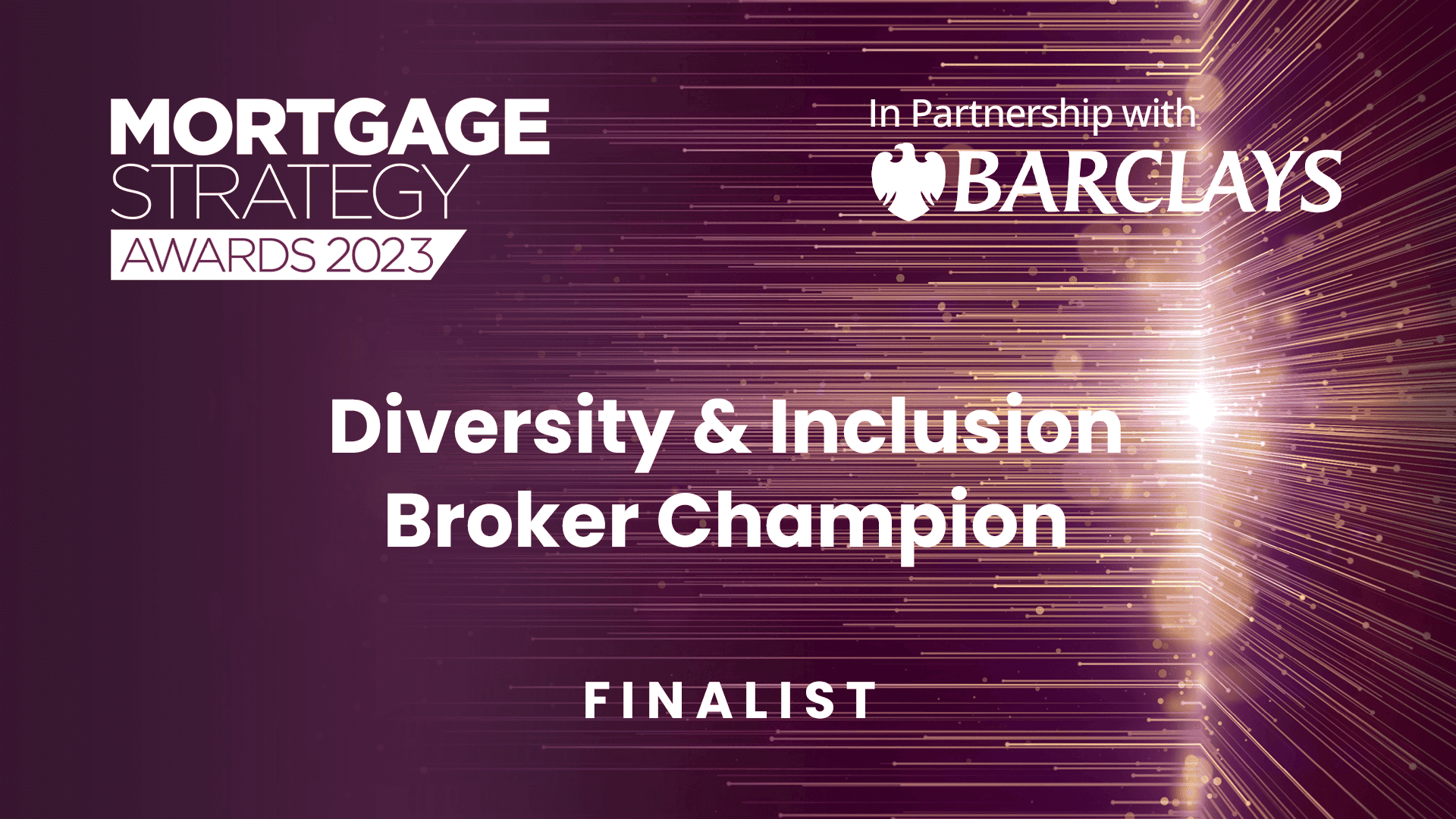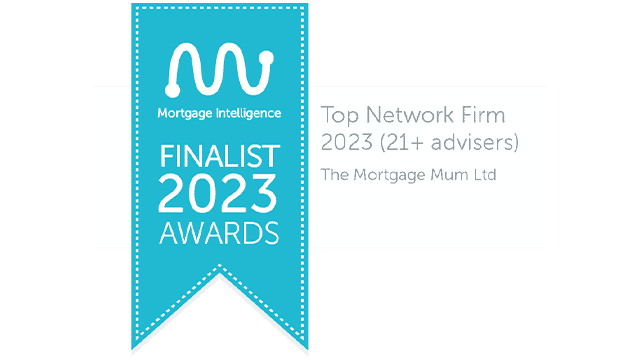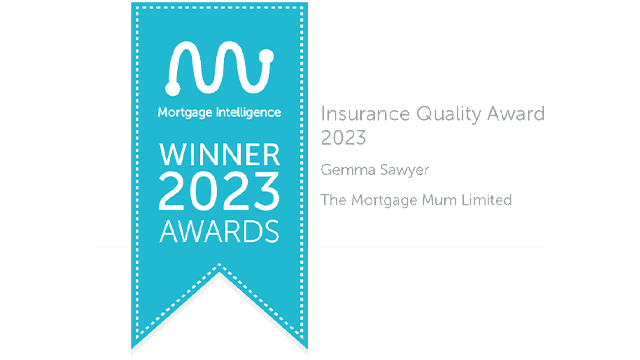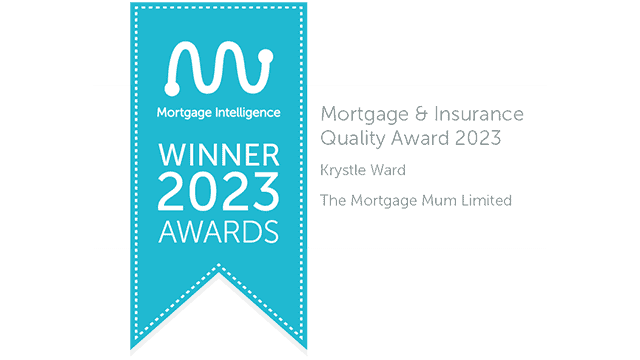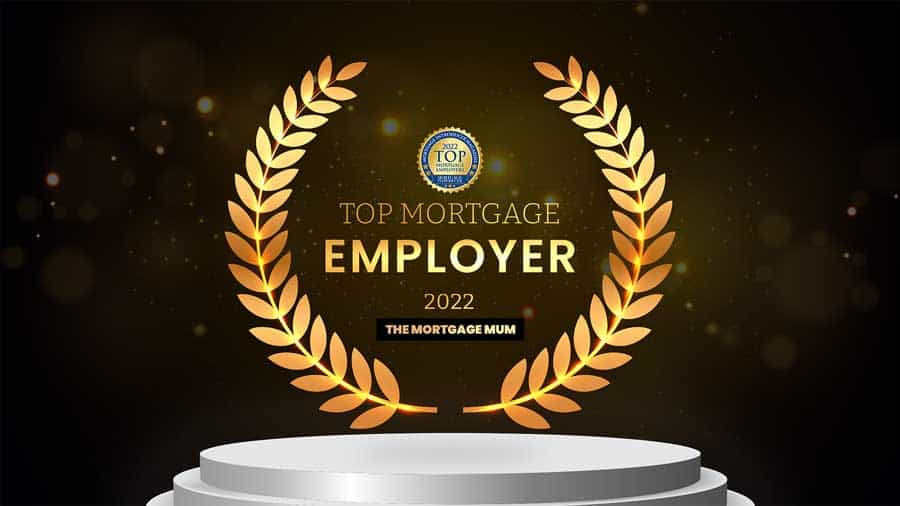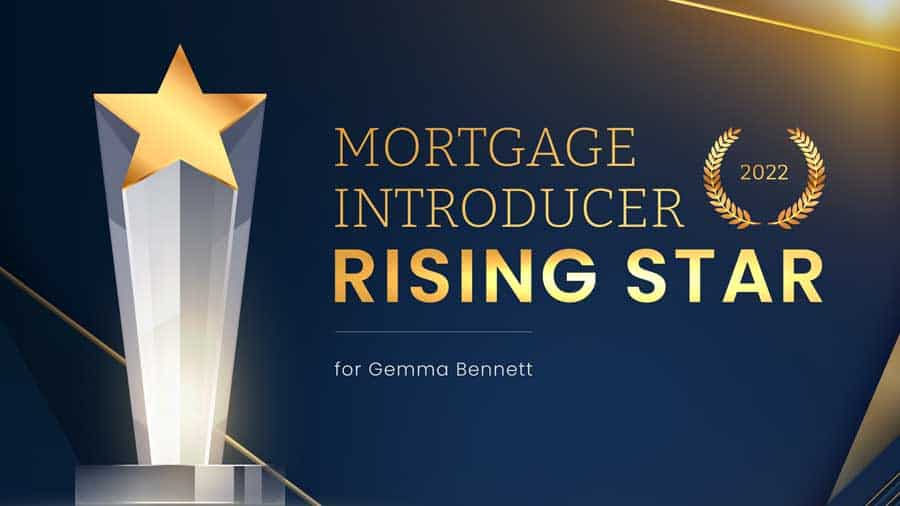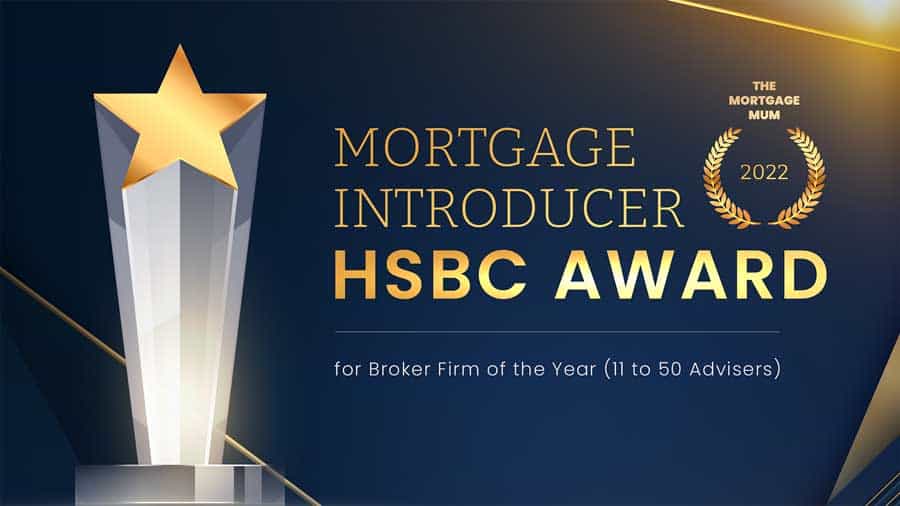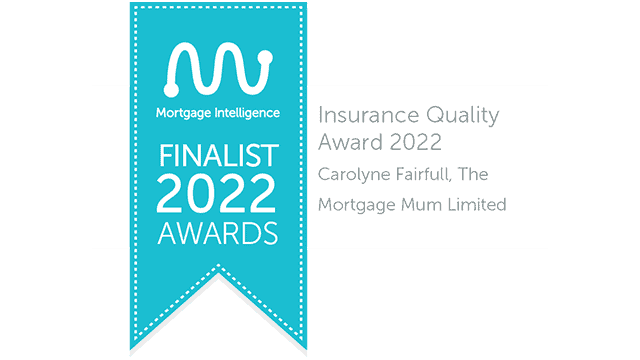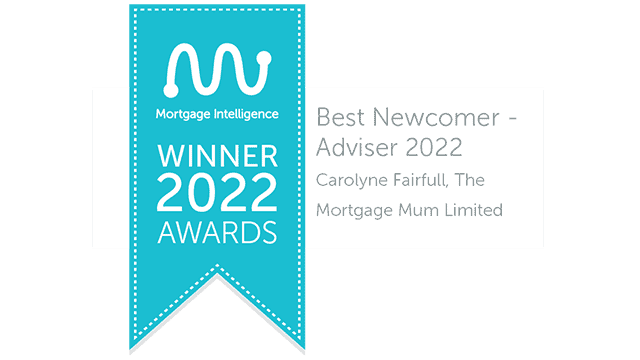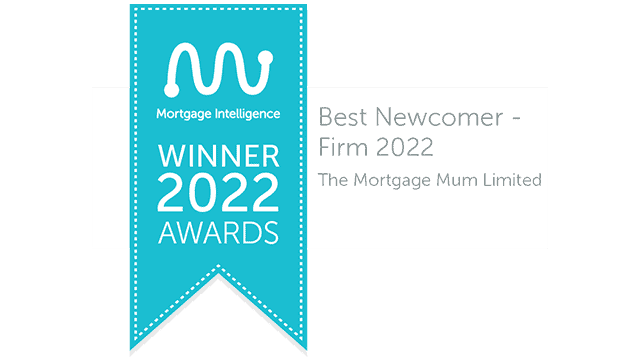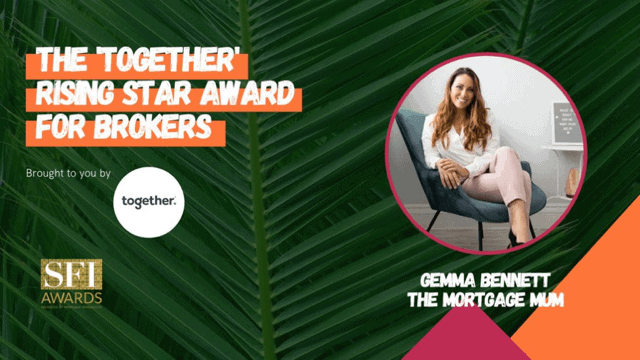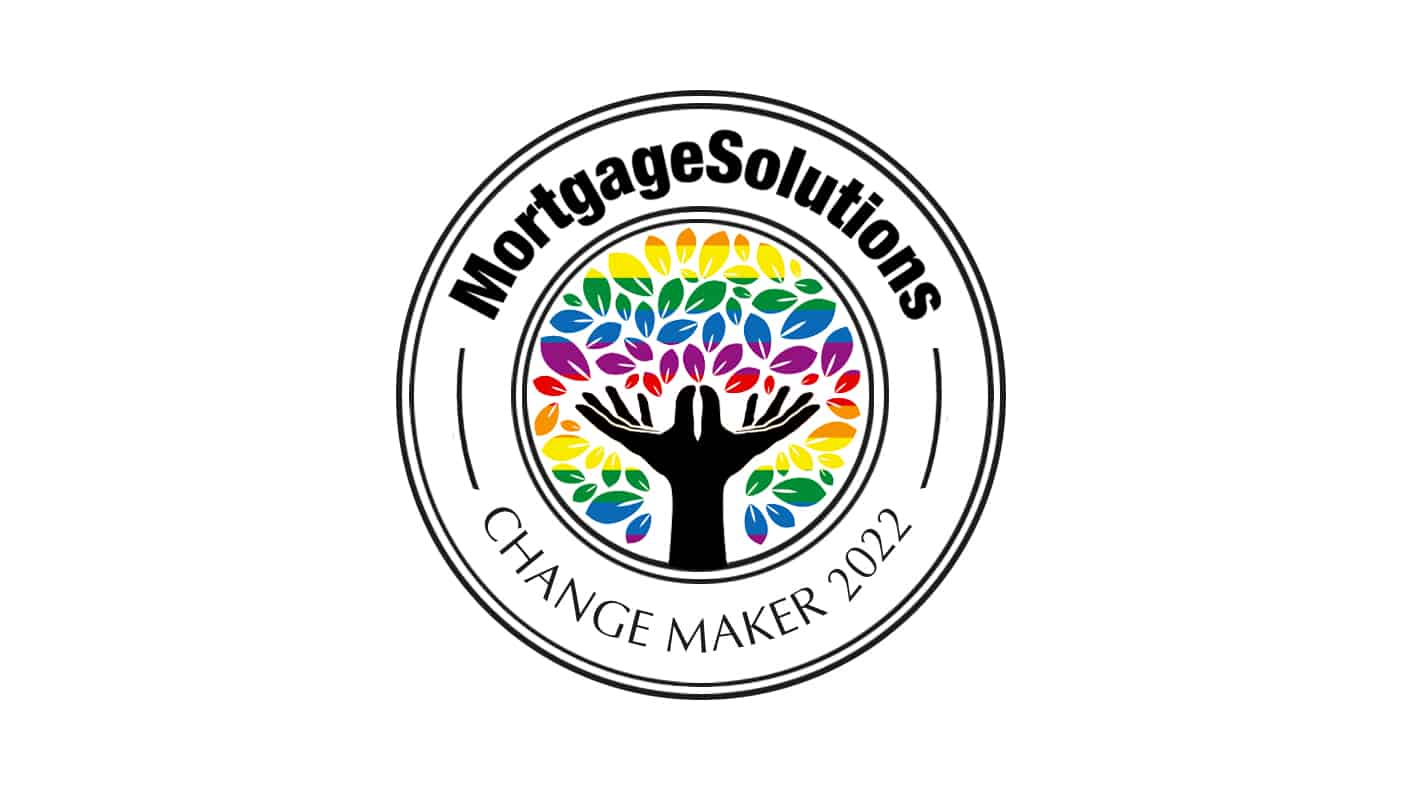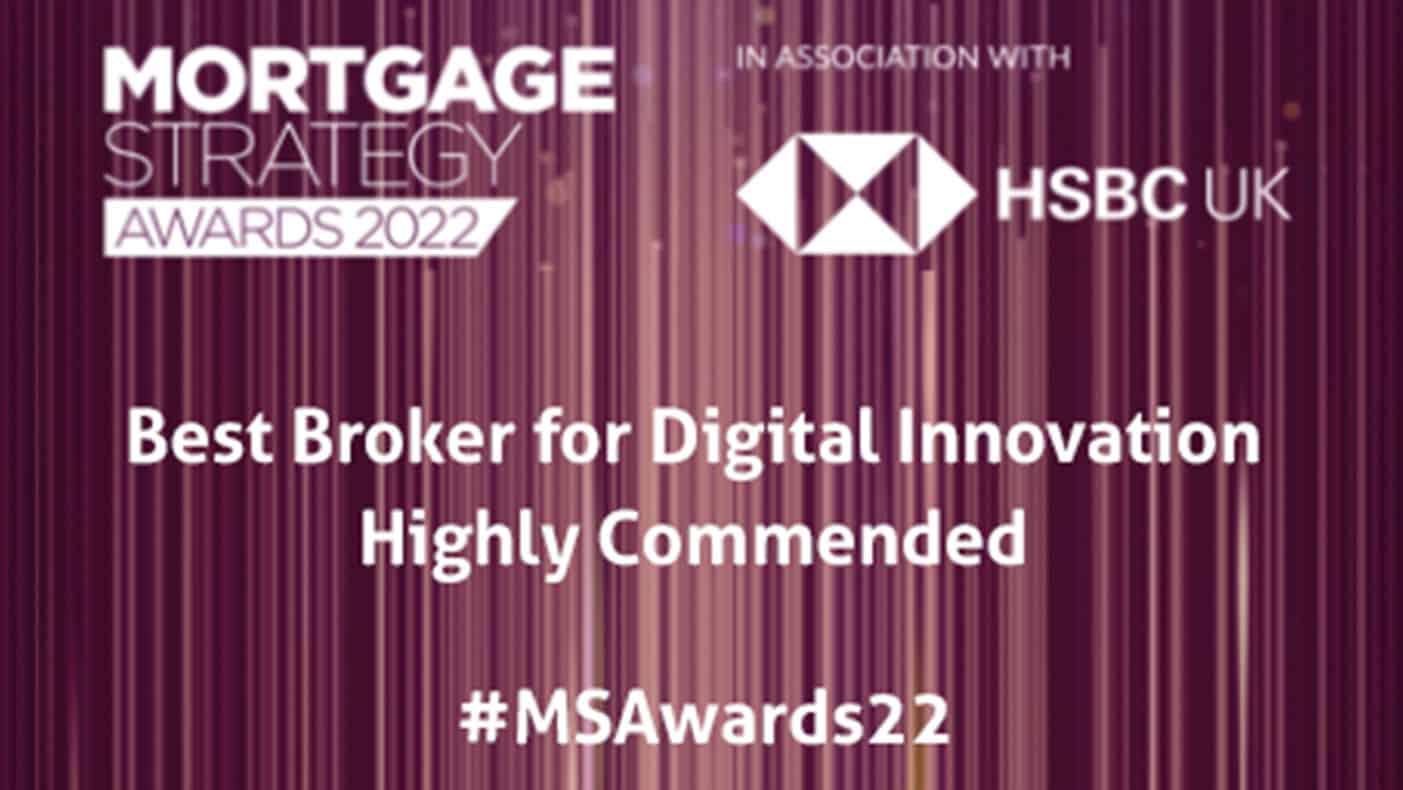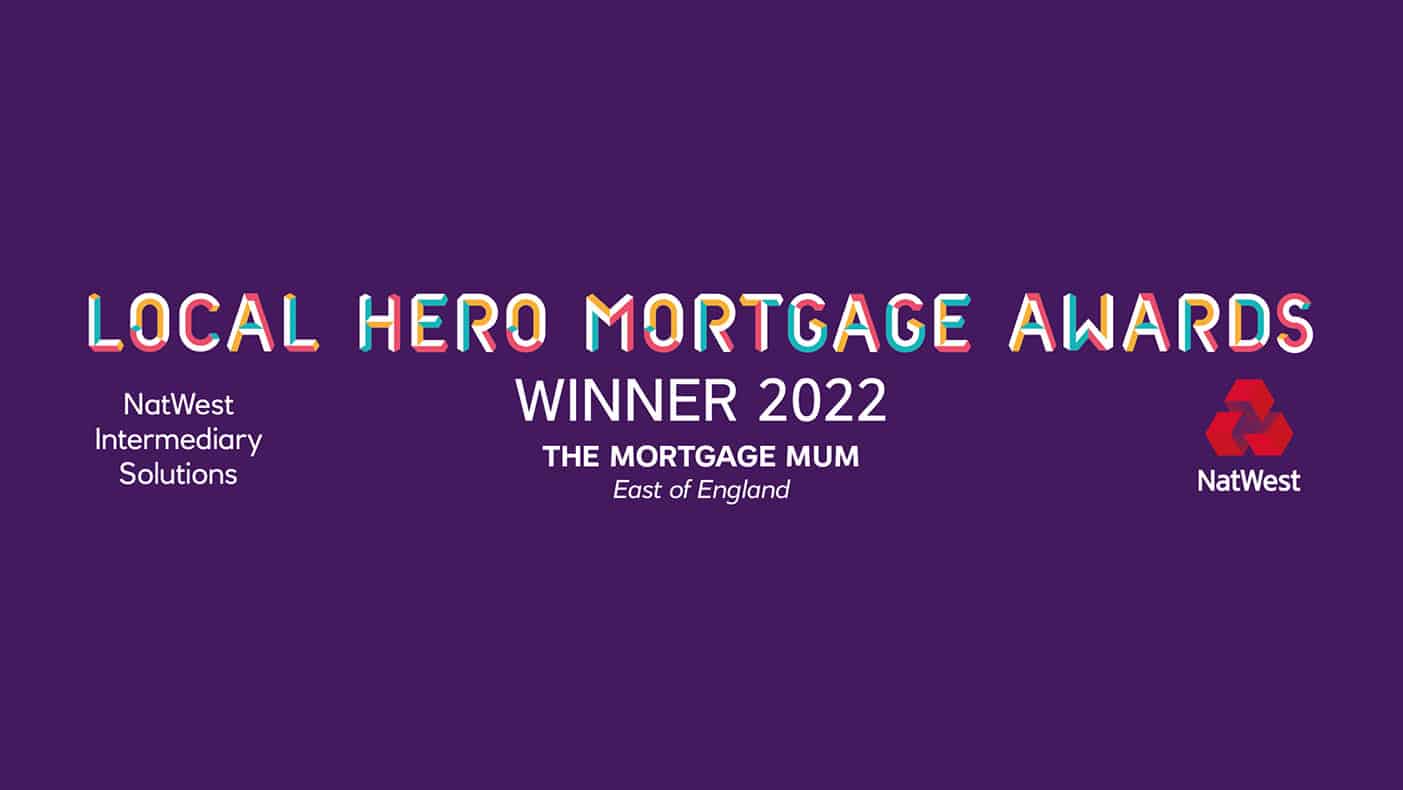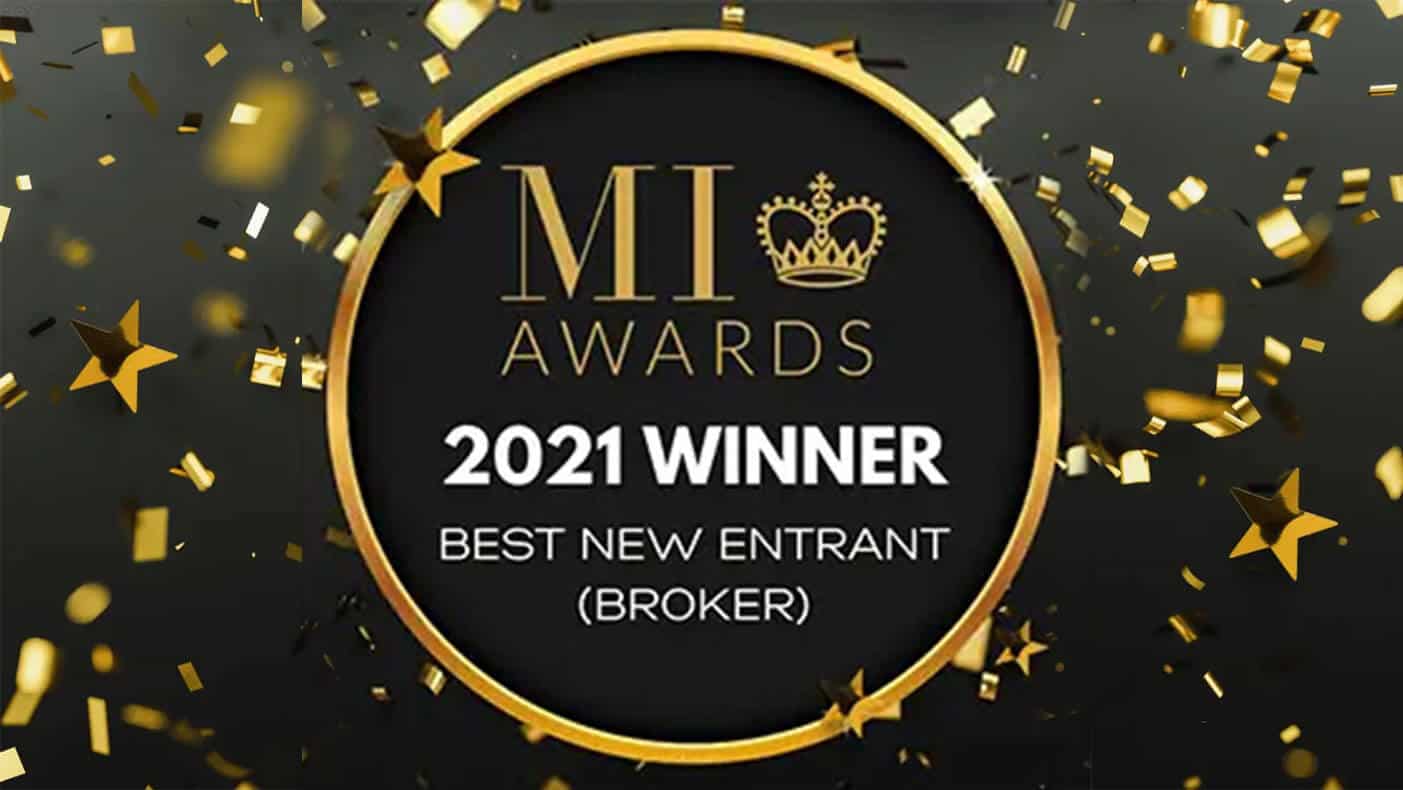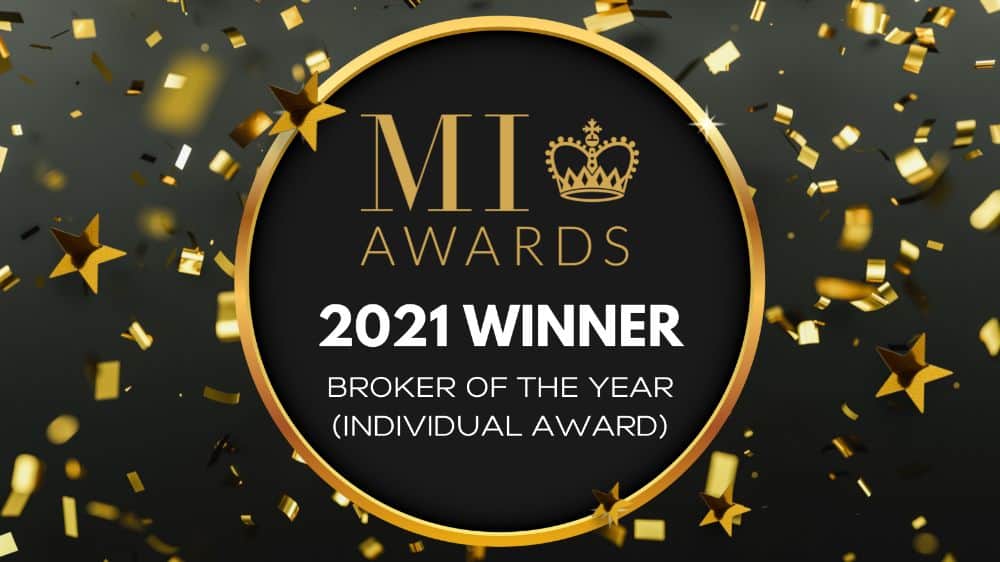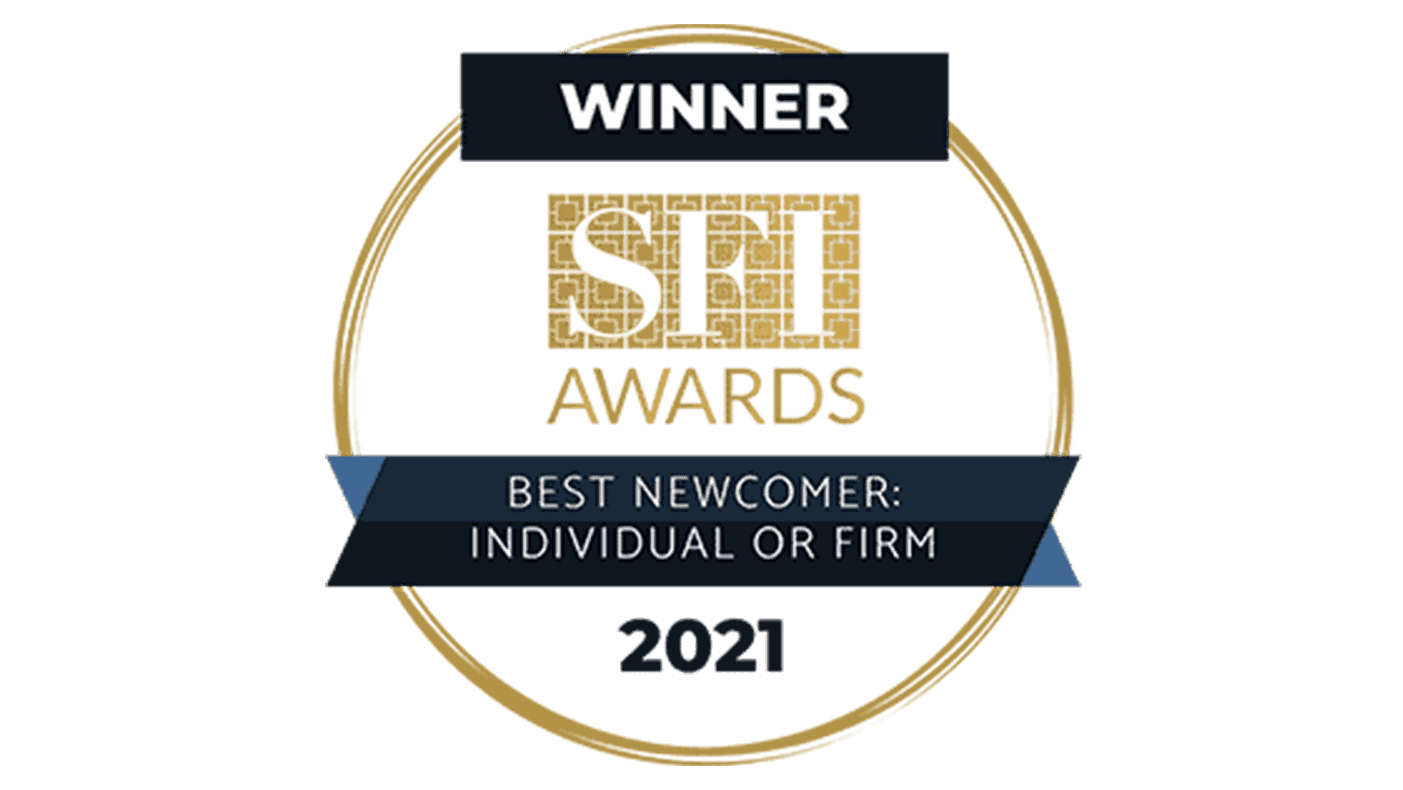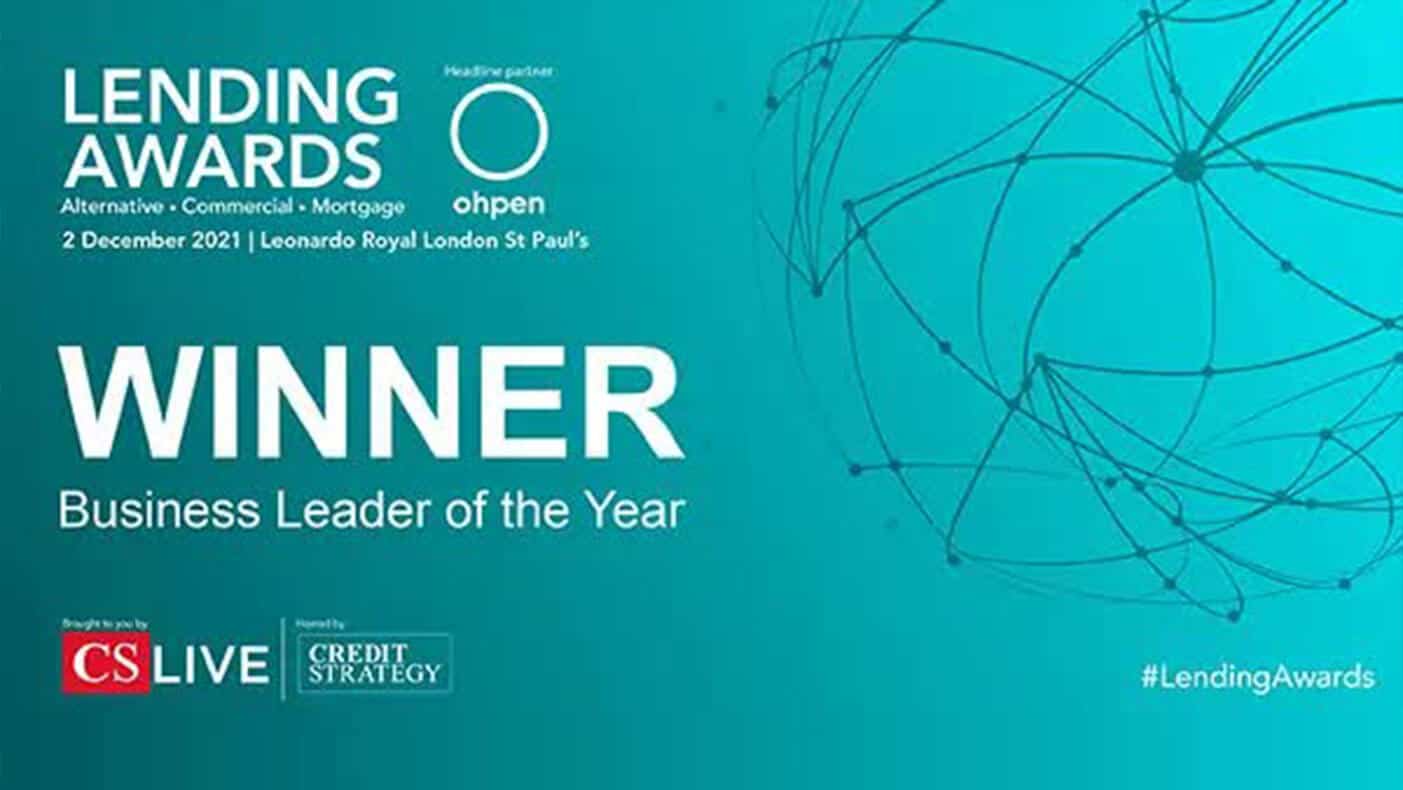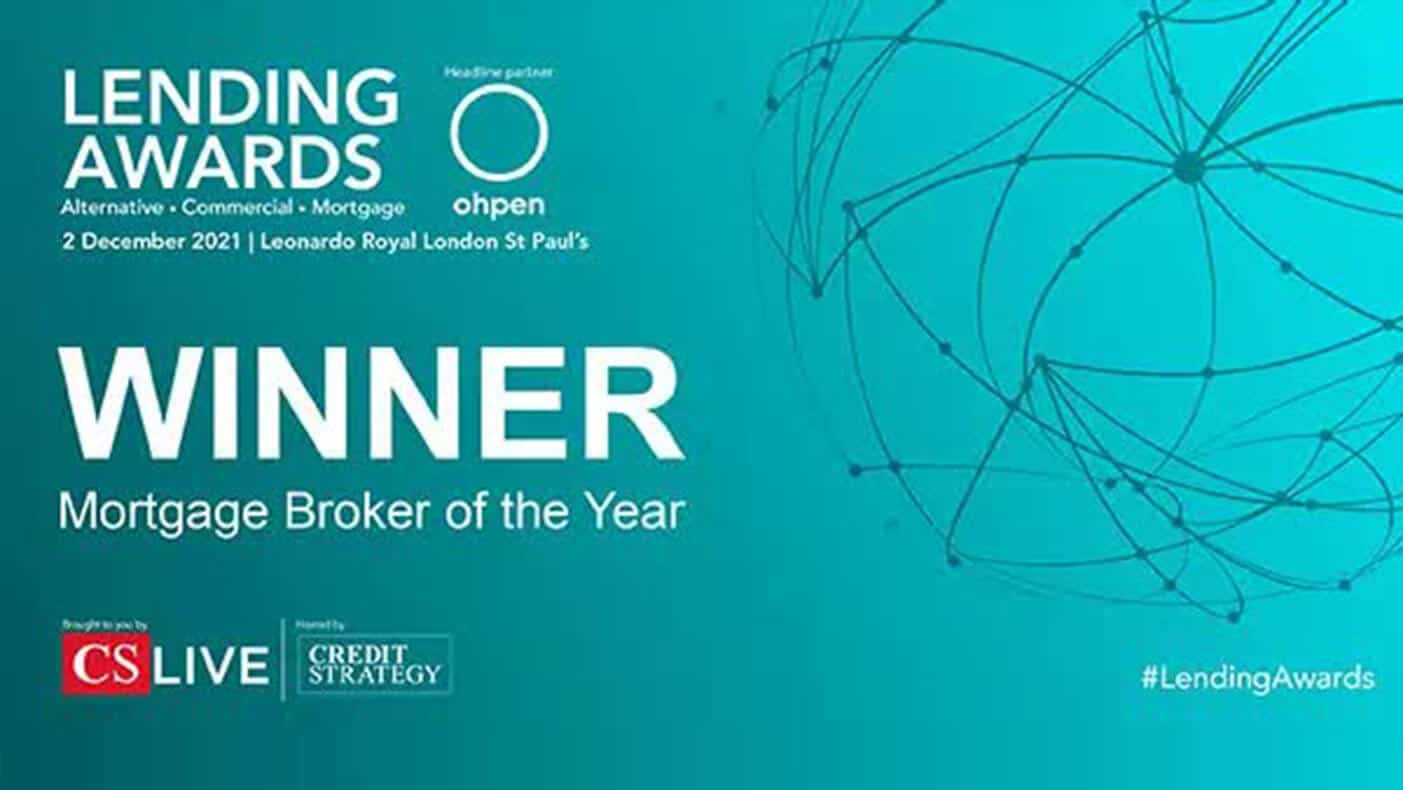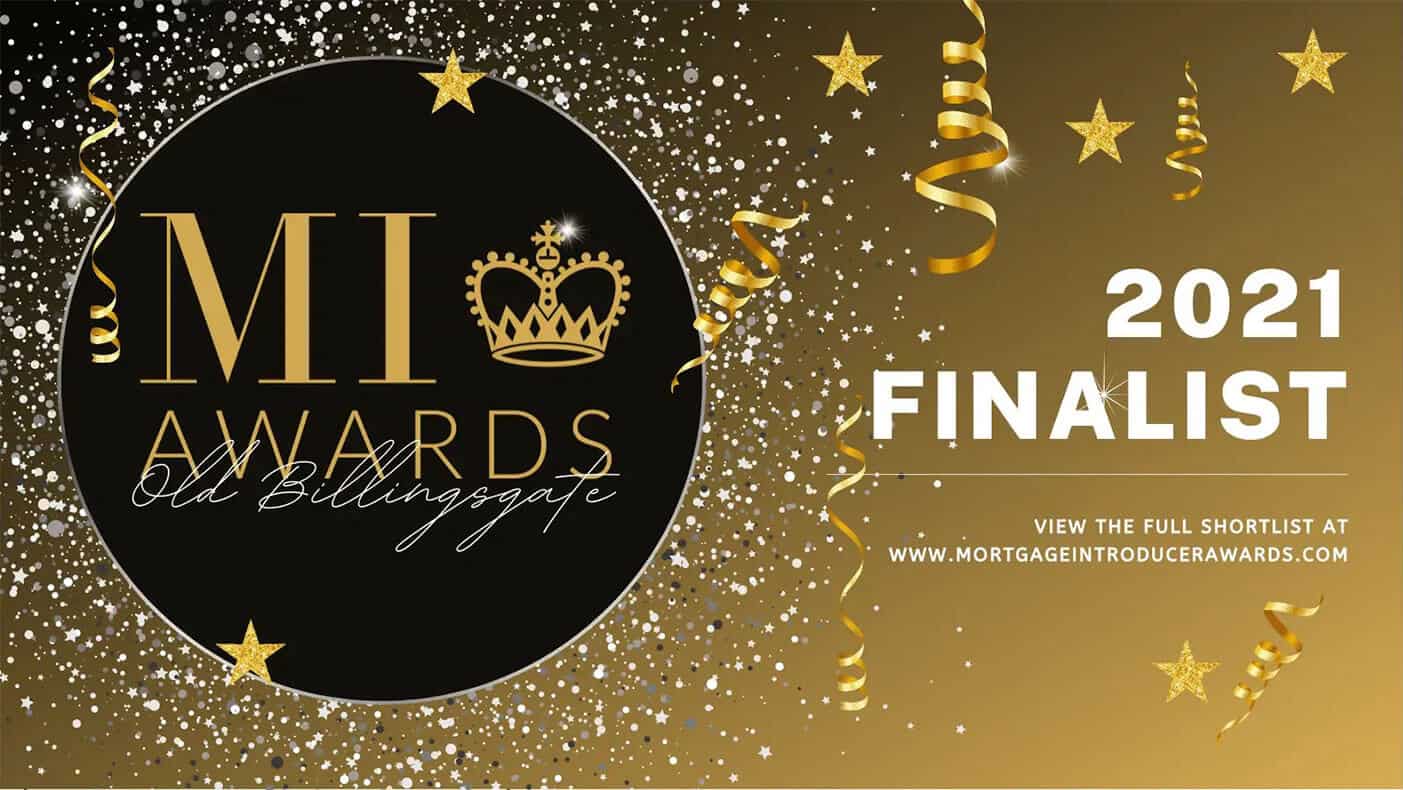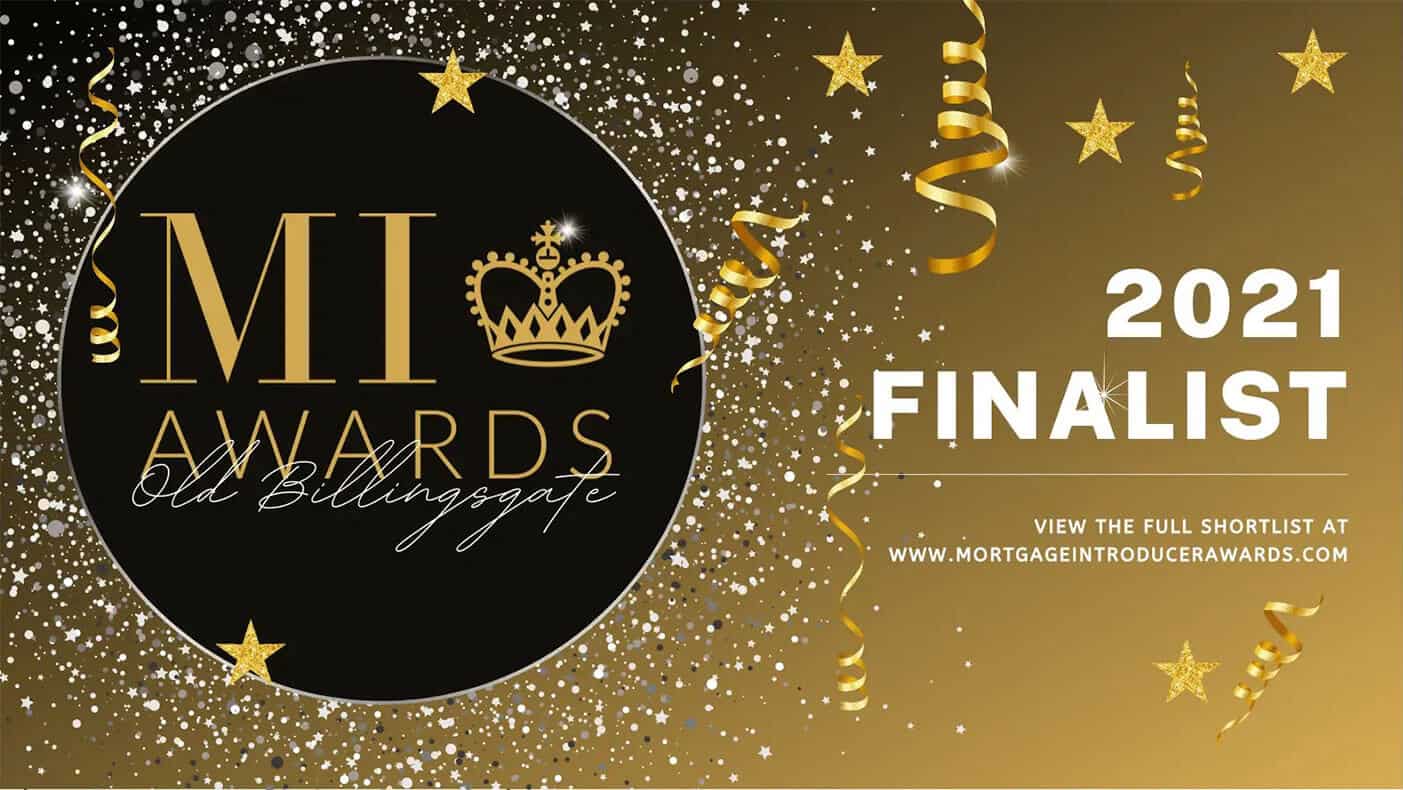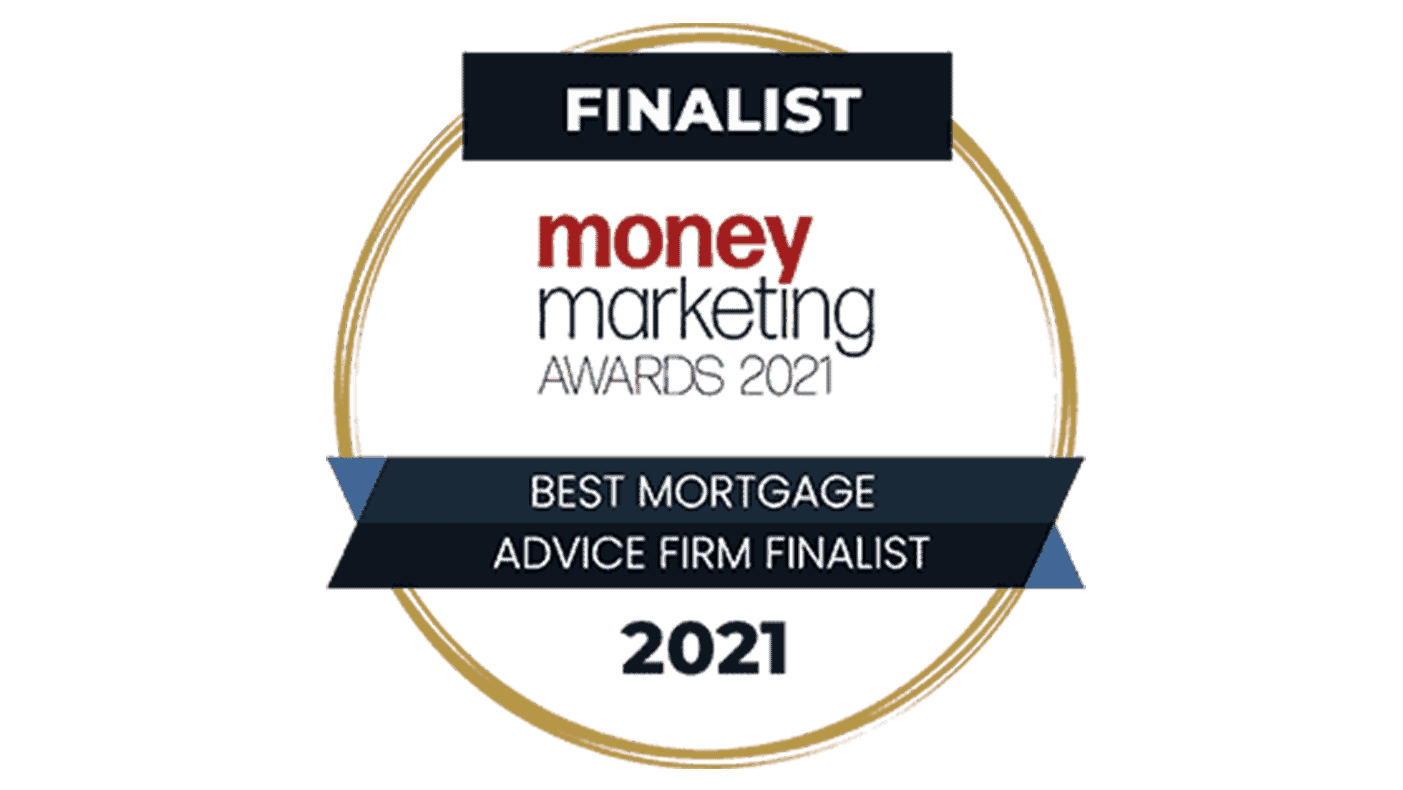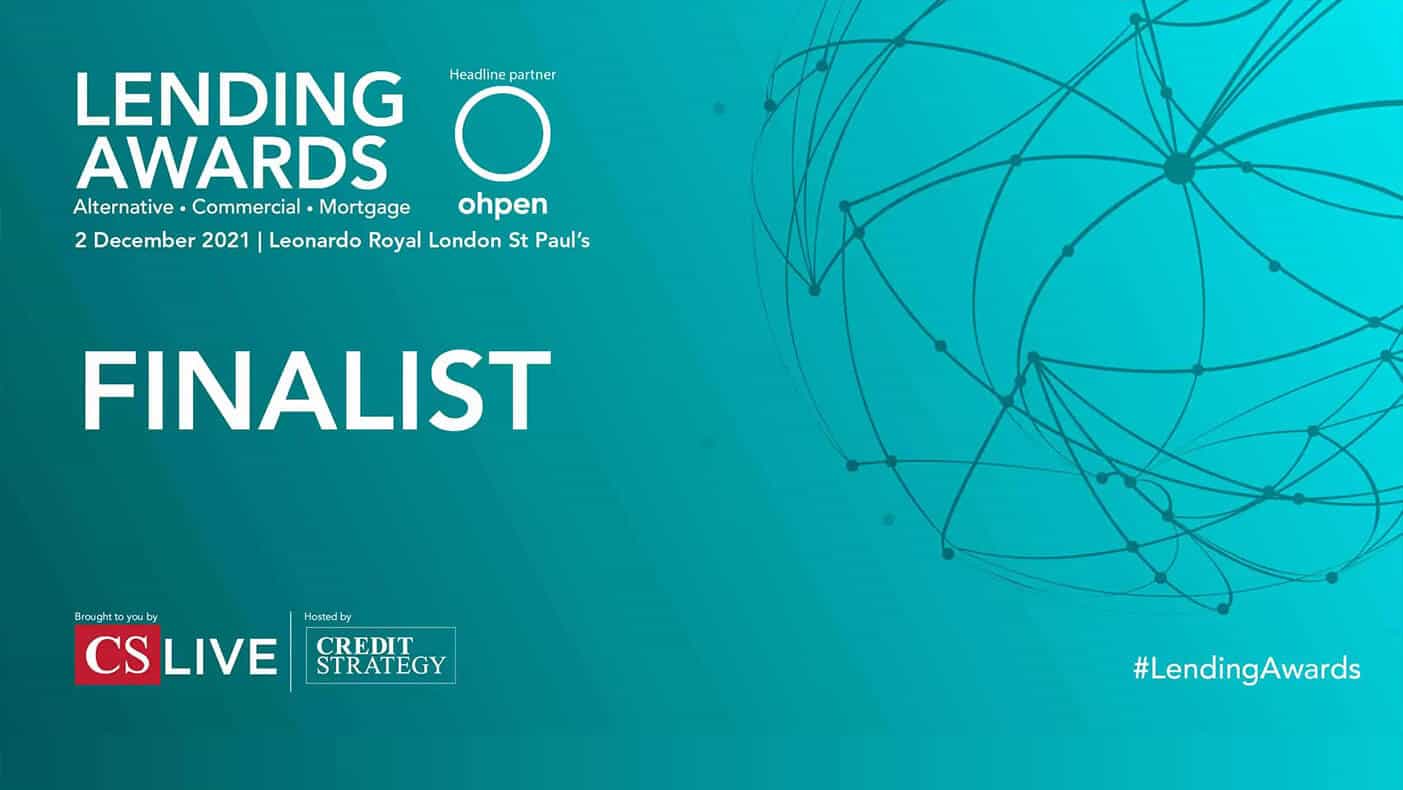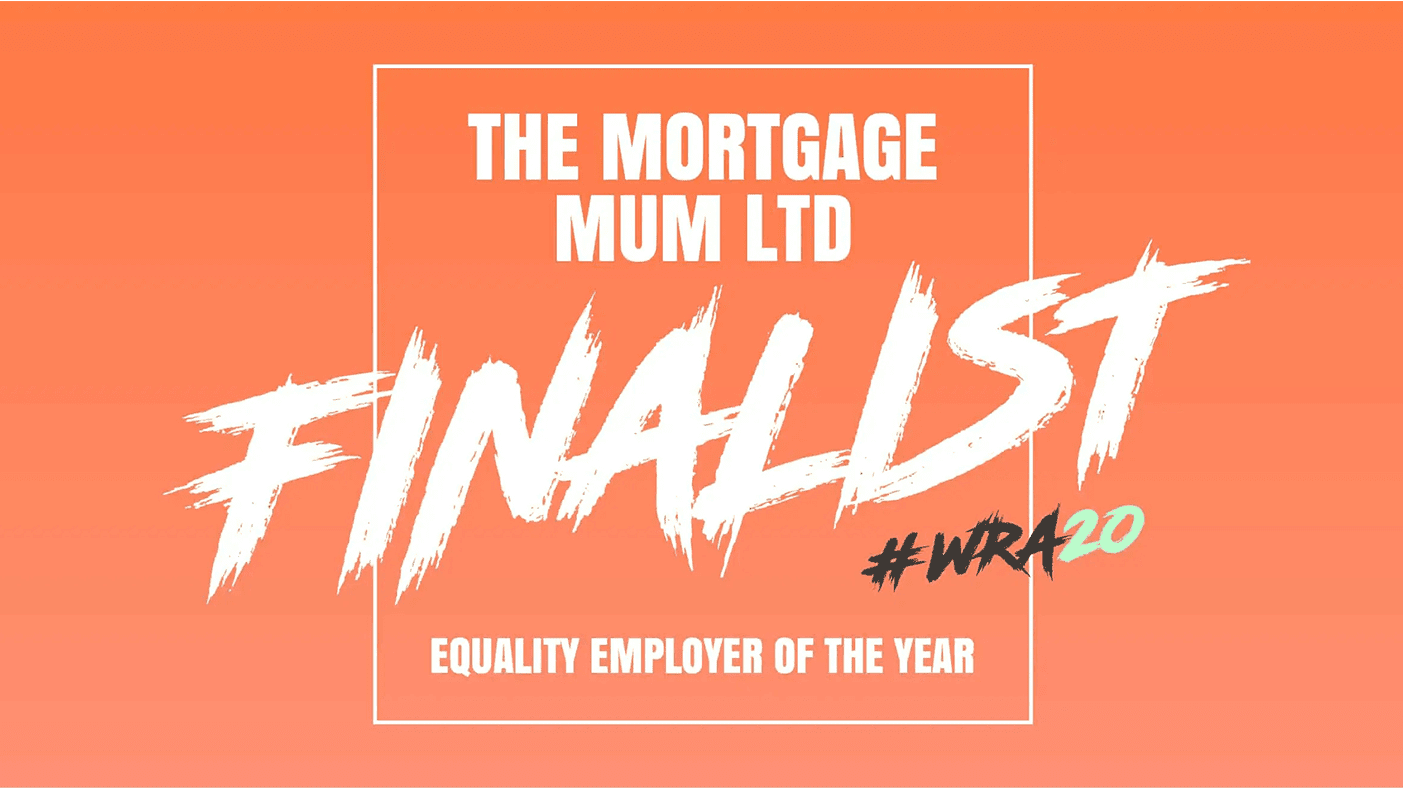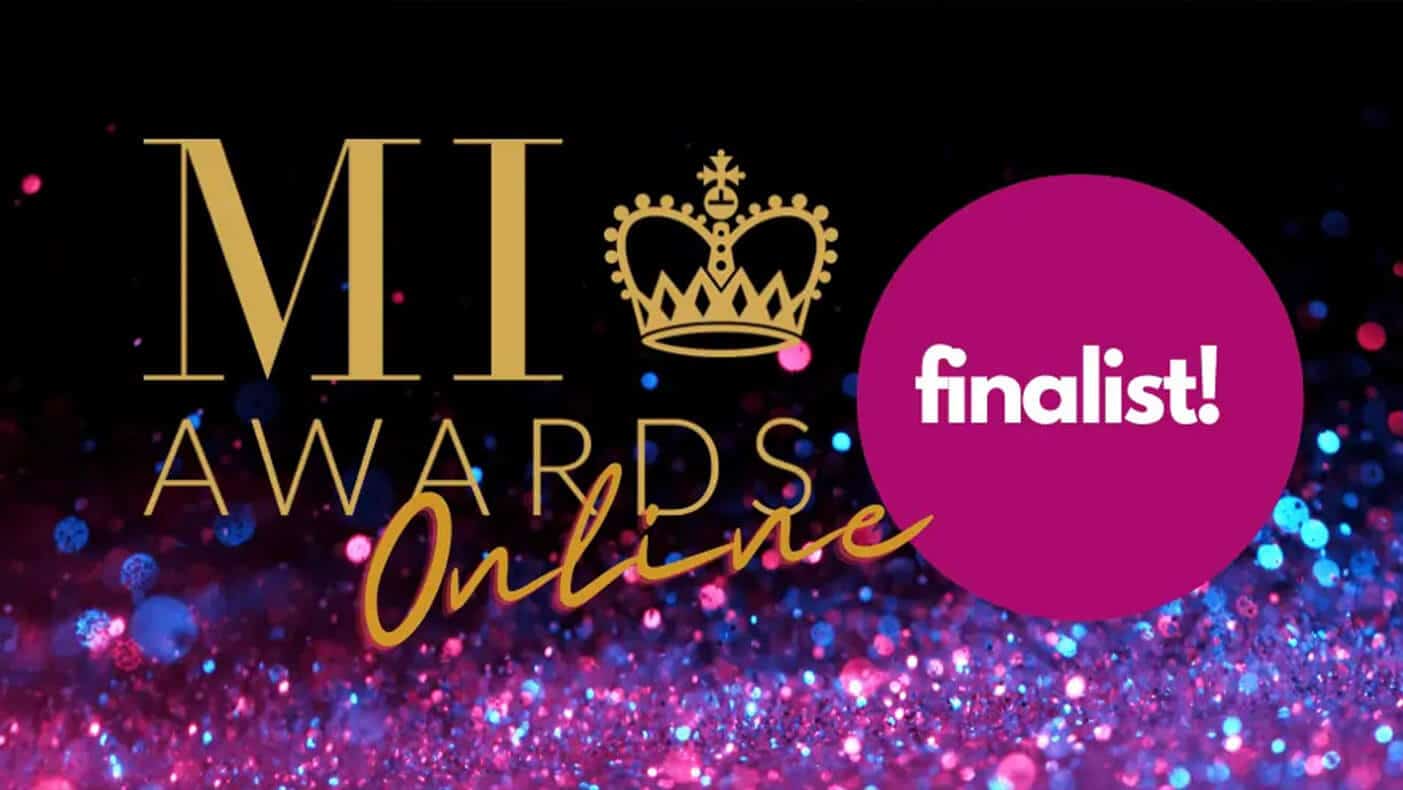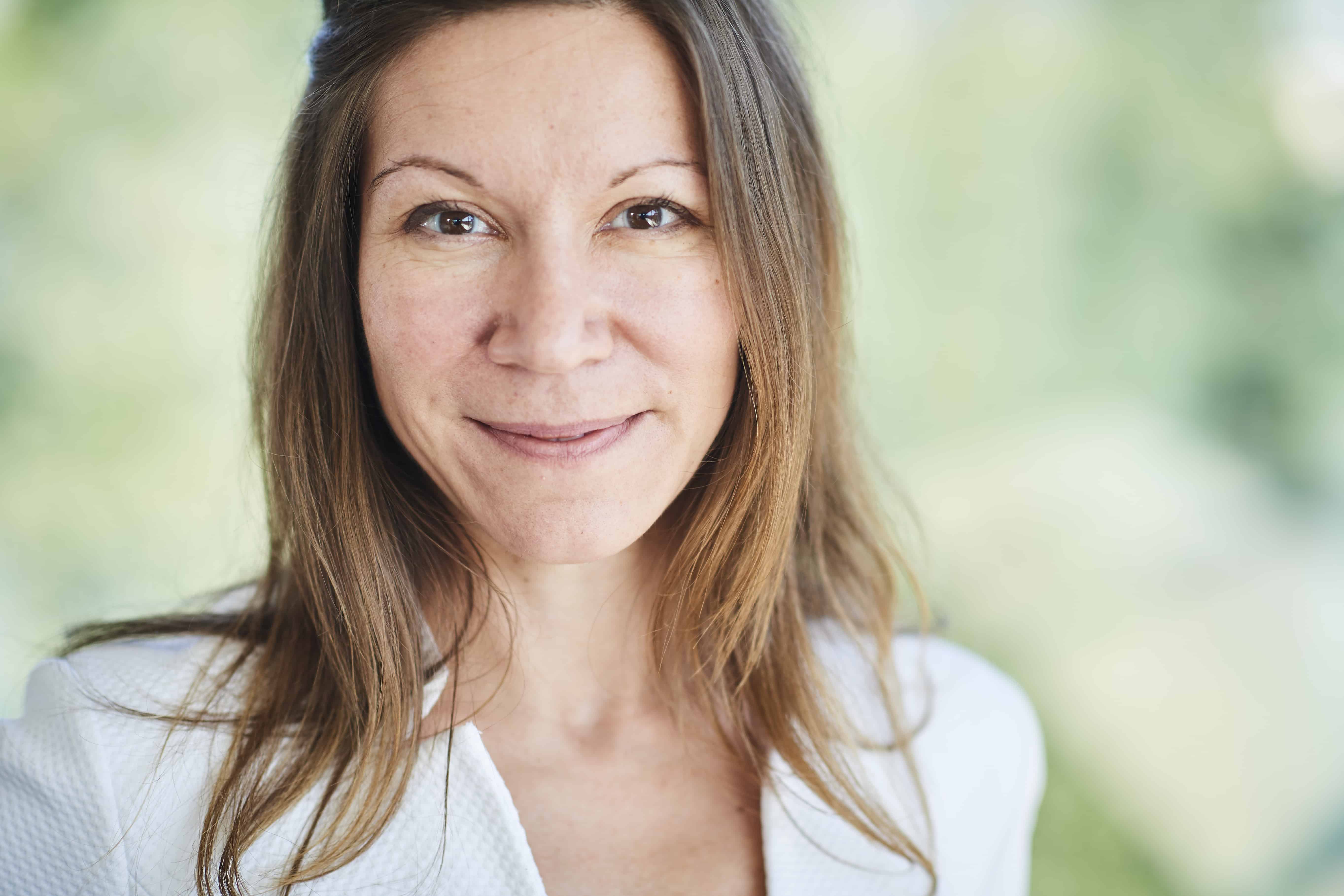
This is not a battle of the sexes in finance. It is a matter of finding a joint way in order to create a more prosperous future for all of us.
Welcome to The Mortgage Mum Podcast with me, Sarah Tucker, founder of The Mortgage Mum, where we believe mortgages are about more than just money. Join us every week where we will share with you bite-sized tips, interviews with inspiring people inside and outside of our industry and tools to help you achieve balance in every area of your life.
And a very warm welcome to this episode of The Mortgage Mum Podcast where we are going to be talking to Olga Miler. Olga Miler is the co-founder of a company called Smart Purse and she is a global innovation expert specialising in women and finance. She’s been broadly recognised for her transformational achievements to change the financial services industry for women and gender equality, with features in the global press such as Sky News, BBC News, CNBC, The Financial Times, Bloomberg and The Guardian. She’s won numerous awards including Inspirational Woman of the Year by City Wealth magazine and a place on the senior leaders in FinTech Power List by Innovate Finance. Now on the podcast you’re going to hear about her career at UBS and how she went on to co-found her own startup Smart Purse. She also does write a blog, Women and Money, as a columnist for Watson News, she has two children and she lives in Zurich and London, and she’s joining us today from Zurich.
Now what I loved about my chat with Olga is really finding out the reasons why she is so passionately working towards gender equality and women in financial services, and as you can imagine I was really excited when I found out about the work she was doing, because it’s so aligned with The Mortgage Mum. Smart Purse themselves have some incredible statistics which I want to share with you today, and this is the reason they do what they do.
So 58% of you do not understand your payslips if you’re employed, 58%! 55% of women did not take control of their finances until they were over 33 years old, 65% of women would describe their relationship with money as complicated, and we talk about that on the podcast. 13 hours of productivity is lost per employee per month due to money worries and 60% of women have never negotiated their salary. They offer courses, they have events which we’re going to talk about in this episode and it’s very exciting for some of you, and they are doing lots of work in the financial services industry to improve things for women, improve things behind the scenes. So it is my great pleasure to introduce Olga Miler to the podcast today.
So a huge thank you Olga, for coming on The Mortgage Mum Podcast today I’m so excited to get into this.
Yeah, I’m absolutely thrilled to be here, Sarah.
Thank you. So obviously I’ve given a very great introduction to you at surface level, but I would love for you to talk to us about your journey to this moment. So how did it start? Where did it start? Tell us a bit about your career.
So look, I have been a woman in finance for the bigger part of 18 years and 12 years out of that financial journey I happened to work in the world’s largest wealth manager, UBS and become fairly well known for being a person that worked for so long in finance without having a lot of conversations around figures, all my discussions always evolved around what is the money supposed to do? And in that regard, I kind of had a lot of exchange with women and they were telling us all that we really don’t feel at home in this bank, we really don’t feel understood, we really feel, you know, this is all kind of very alien and not very welcoming. So we sounded out at that point in UBS so many women, what the bank could do better and we detected that, of course changing the dialogue and having more women in the organisation would be very great things to have, but also this huge opportunity of financial education, demystifying all of this financial wisdom and knowledge into something practical and applicable to daily life.
And I tried to do that out of a bank, I really tried very hard and I was actually testing our Wellman financial education in Jude Kelly’s Women of the World Festivals and no woman would, would have it. They all go like, ‘nah, this is coming from a bank somebody will call us and try to sell us something, we don’t want to have this’ and so Judy and I were reflecting over this and we said, look what would happen if financial education was done completely differently, impartial, practical, in a safe space where women feel empowered to ask any question they want to ask without feeling stupid without the fear of being patronised for it, and that’s basically how we came up with this concept of Smart Purse and that is what I’m doing ever since. So in a nutshell I am a woman sitting here talking day in and day out about money and what to do with your money better.
Amazing, I love that story, so you came through the corporate world, identified a problem, identified a need, and then went out to set that up and you do work with the big corporate companies now don’t you? So can you tell me a bit about what role you play with them now?
Absolutely, so we work predominantly with two types of corporates. One can be any employer that has an interest in educating their workforce financially and the financial education that we provide is probably fairly unique in itself because it’s gender inspired or gender agnostic. So if you can imagine somebody wanting to teach their workforce about pensions, which could be a very common topic or mortgages for that matter. Then when we come in we always look at what does it mean for men and for women?
So for instance, it’s probably easier to explain it on the area of pensions we would teach, you know, what are the pitfalls of part-time work, which in a modern society could impact men and women alike, right? But both of them need to understand what that means for their pensions and what precautions they can take. So that’s one type of corporates we work with and the other type of corporates we work with are financial services companies, who we help to adopt and develop a better value proposition and better products to serve the female audience. So I for instance, train financial advisors or brokers predominantly men on how to talk to women successfully, where the differences and the nuances in the customer experience are, what is it that women expect and what are the absolute no go’s. We also help these financial services companies to create new products or to create new initiatives that will help them to connect to the female audience in the way they desire to connect with them.
Speak to an expert
We will work at times that suit you and your family, carrying out appointments via video call, telephone or email, giving you the benefit of first class service, around your own schedule, and in the comfort of your own home. So let us handle your mortgage today and find out how well we can look after you, The Mortgage Mum way!
So that’s amazing and really interesting that so much work is needed for them to understand, because as a fellow woman, you know, to me and I guess to you, it feels obvious what we need and what we don’t need. I love the fact that these companies are investing in someone like yourself to actually say ‘you know what? We don’t know the answers we don’t know how to talk to women or how to market to them effectively and we want to’ so that in itself the fact that you’re, you have a company that’s working, that people are willing to invest in to me is really exciting and a huge sign of positivity that change is coming.
Absolutely, for me it is an absolute sign of change. Now, mind you I started doing all of this work in 2013 and it took the bigger part of three years for UBS Wealth Management to commit to a global change program which was launched in 2017. And that change program had 10 work streams from looking at the data with a gender lens to educating 4,500 financial advisors to crafting bespoke marketing to financial education. And then for a very long time, not much has happened in the financial services industry and now I feel that there is this burst of energy, this burst of willingness to take the women value proposition beyond research reports, right? Being a woman in finance I can say this, the natural response of the industry to any opportunity is to put out more research. Why, because research is easier to be done than changing your whole marketing approach, it brings you good PR and we are a data-driven bunch of people. So I am on my research report number 800 on what women feel and know and do about money and what we don’t feel and know about money and as much as this data set is very valuable I think tangible action needs to follow. More women in leadership positions, totally made financial products, customer experience that helps to orient people e.g. transparency in pricing, right? All of these things that still need to happen, more capital towards women and I see that now there is a real willingness to embrace broader strategic projects that tend to be costly because it doesn’t happen from today to tomorrow right, to change your organisation, to change your KPIs. But there are different runners now that really are trying to lead the field and are not doing it just for the sake of marketing, but with the full energy and heart and willingness to actually change financial services. And that to me is inspiring and it’s also kind of my motivation to get out of bed every morning and say ‘okay, today we got to do this.. let’s talk to another 100 advisers how things can be made better’.
Amazing, yeah I love that. So what was it that happened in your life Olga, that made you so passionate about this? Did you have your own experience that you drew from? Did you feel those things that women generally feel in a big corporation such as UBS? What was it that gave you that fire?
Look, for me my dad died of a sudden heart attack when I was roughly 27 right and he really died on holiday like his head dropped in you know a bowl of strawberries and he was gone and he left my mom and me with quite, you can’t say a mess, but probably as a Swiss person I would say a mess. And then as we worked through these finances none of my mom nor me had any clue about financial things. I’m an economist by training and my mom is an entrepreneur. So we’ve worked through this and we detected interesting things such as the pension funds were missing etc things my mum living in a happy marriage has never been told, could have been happening to her. And actually now I know that’s statistically 8 out of 10 women experience unwanted financial surprises when it comes to separation or the death of a partner, but at that point in time I didn’t know and the banks that we turned to were mildly helpful, they said, ‘well we were happy to advise you when you sold your dad’s business’ which wasn’t exactly the advice I was looking for in that very moment and so for a very long time, the bigger part of eight years, I couldn’t speak to anyone about this because I felt so ashamed. I thought look, my parents they had a happy marriage, my mum is a smart entrepreneur, I’m a trained economist, right? Why are we unable to get to terms to this and understanding what’s happening to us? And then I didn’t think about this any further for a very long time and when I started to exchange with these clients, women, clients of UBS, what the bank could do better, I learned all their stories and I learned that I was by far not the only woman at all.
They were telling me, you know ‘the lawyer was cheating on me I want to get a divorce, but I don’t know how to do it financially’. All these different things, very personal stories and I kind of found out and say, bloody hell I am not alone. And I think that for me was the moment of liberation to understand to say if there are so many other women like me out there in the shadows, well suited, well educated, brilliant women, but when it comes to the subject of money each and every one of them carries their own money story. There has to be something that I can do about this sitting in this bank and so then I did, of course, and today all my energy comes from the women, the women that attend our courses from women like yourself, from all the ladies that are working on The Mortgage Mum and hopefully all the ones that still will be joining right, to realise we all carry a money story. But when you realize that the bundled force of us is actually a huge force of change. That is the energy that I think is absolutely pivotal a that will catapult finance into a completely new field.
I love that. I mean, such a difficult thing that you went through, but it can only be with something like that, where you find that level of passion, you have to identify through that pain is what drives so much of your passion to help other people that are potentially sitting in their own pain. There was a word you said, shame, and I think that is the biggest connection isn’t it? Money, shame women with so many people that have so much shame around their story. So I guess it’s about us sharing those isn’t it and coming out of the dark a little bit with those stories.
Absolutely, and have the courage right, in Smart Purse we surveyed women you know, on the last event that we had we surveyed 250 women and we ask them ‘what’s your relationship with money’ and we gave them 4 options to answer. Only 1 in 10 said it was a happy relationship, which means 9 out of 10 will go ‘ oh god’, 6 out of 10 said it is very complicated. And I personally am convinced that this is very much rooted in female history around money, right? Mind you up to 1976 or 75 in the UK women still had to ask for permission to open a bank account, in Switzerland where I come from, so up to 1976, which is the year when I am born, it’s not that long ago, I still consider myself being young, women had to ask for their husband’s permission to be allowed to go to work, right?
So the money history that we carry with us as women, I guess it’s hundreds of years of being told that we are an economic entity with a guy and that’s not disrespectful to the gentleman is just to understand right. That we are maybe not entitled to make our own money decisions and then financial services that the rest of that, which is making it very complicated, the language, the, you know, the graphs, the whole appeal of it, right? If you type in financial planning in Google and you look at the images you receive not just the overwhelming amount of information, just the images that is only slowly changing now, very slowly. And I think we as women and all the gentlemen out there have to be aware that this is a fact of our history and that it might not be that easy to just step forward and say ‘oh, I am, you know good with money’ because also society maybe it’s not ready for that to embrace women that say, you know ‘I’m strong and confident with money’.
There might be people out there that look a little bit ‘she’s a little strange this money talking woman’ right? I get that a lot also in Switzerland and I think we need to make a conscious effort to build each other’s resilience as well as financial confidence. And that happens easier in a closed, safe space and in my mind among women. But I think more and more, it also can happen with open-minded men, right? Dads who need to educate their daughters should be as much part of this journey as all the mothers are right? This is not a battle of the sexes in finance it is a matter of finding a joint way in order to create a more prosperous future for all of us.
Absolutely, and I often think that in terms of relationships with money, it’s just as difficult for men to identify theirs and admit it, as it is for women for completely different reasons, because men don’t talk about feelings and stuff around money, or that’s certainly the training that they’ve had. So I think there probably is as much work to do for them but like you say, it’s in our history and in our ancestral chain. It’s how we are conditioned at our very core to think about money. I was only telling my daughter this weekend about the bank accounts and even when you say that, that’s not that long ago, it really isn’t that long ago. That’s our parents’ generation, isn’t it? She was gob smacked. She couldn’t believe that that was real, you know, and that’s what’s so lovely is that generation, if we do the right work, that generation won’t carry that we can stop that here. But like you say, it takes us all to come together, it takes a village as they say. So can you talk to me about obviously Smart Purse is generally hired by companies, right? But how can you, you know, our listeners, for example, how can they benefit from the work that Smart Person is doing?
Absolutely, I mean we have a fully-fledged digital money school that everybody can access, men and women, for that matter 30% of our users are men which is very cute. So you can go online on smartpurse.me and you will find a 70 lesson digital money school that we are also turning into an app. You can access that and basically learn at your own time, I call it kind of creating the money moment of today, so five minute lesson, right? Then you can watch videos and do some exercises. So that’s one way to engage with that. You can attend one of our courses, so we have video on demand courses and live courses because people learn very differently. And finally, if that is all too much because most people might not be ready at the start to say ‘I’m going to take this financial course’ join one of our events. We host large scale events where women come together to talk about money, to exchange around our feelings around money, and the next one is October 16th, the Money Rally. So you are all invited to just hop on and have a lot of fun.
And where is that going to be?
The Money Rally is digital. We felt it was because of the long planning horizon, a very unsecure environment and a small company like ours would have a lot of difficulty having spaces booked and then not being able to utilise it, so we run it digitally. Therefore also wherever you are in the UK, you actually can hop on Money Rally and enjoy.
So we are just going to take a short break from the interview right now because Smart Purse and Olga have kindly gifted The Mortgage Mum some free tickets to their Money Rally event on the 16th of October 2021. This is Smart Purse’s signature event returning for the third time and has past speakers including Charlotte Church, Alison Steadman and Ruby Wax. The event is centered around increasing financial understanding and confidence through expert led workshops. It’s a digital event and you can get your hands on those free tickets by putting your name on the list. So have a look in the show notes as to how you can do that and you might be one of the lucky few going to this event for free. This might be a sign for you right now, I’m really excited, I’m really grateful that Smart Purse have given us these tickets to be able to share with our listeners. And I’m really excited to be going to the event myself, so I will see you there if you’re one of the lucky few back to the episode.
So you said that you’d like to do a five minute money lesson or money…what was the phrasing you used? Money moment! So how easy would it be for us to create one of those right now for our listeners? Is there, content that we can, or is it strictly Smart Purse.
No, absolutely I mean, we can create a five minutes money moment out of anything, it depends on what your listeners want to learn right? In our money school you learn from your money mindset, how to talk about money, budgeting, how to invest, like the full nine yards. The idea is that you don’t need to sit down or spend the whole evening, but as women tend to be very busy, juggling family, juggling jobs, juggling a lot of social commitments, it’s kind of like almost creating the daily meditation that becomes official. You can create a daily money moment, so if wanted to create one right now, it just depends on you Sarah on what the subject of that would be.
Okay. So let’s talk about those of us and we have lots of this, loads of us who earn money, so there’s no issue with the front end but have learned maybe to spend everything that you earn and I believe underneath that, there’s a, probably something around not feeling worthy of keeping it so we’re very generous and we buy lots of lovely things for people or spend it, just spend it however you spend it. To me that, there’s that because I think people focus on improving the front end, but if they don’t fix that, that’s always going to go, that’s a pattern, isn’t it? Of spending and therefore not retaining your wealth, no matter how much you get. So could we, could we use that? Would that be a good example?
Yeah, absolutely so the money moment around that is basically to develop a budget and the secret to the success of the budget is not that much to develop it is actually to automate what gets subtracted when you pay comes in, because if you have a habit of spending that might very well be right if the money is subtracted immediately, it’s just not at your disposal so you don’t need to discipline yourself all the time, right, in order to not to spend it, it basically goes automatically and two unique ways to do that. So one is to think in three parts ‘what do I want to put aside for the longterm, for the midterm for the next three, five years and for the very short term’ and that’s kind of the money that you keep and just automatically let technology help you subtract these amounts and to put them into your pension account or into an ISA or into something else.
That’s one way to do it, the second way to do it is to use a round up function. So there are some very neat tools to use, especially in the UK that allow you to say ’round my spending amount up to the next pound, to the next five pounds to the next 10 pounds’ and every time you purchase the tool or the card will automatically round up and invest that money on your behalf and that way you don’t need to change any habits, actually, because while you are putting money at disposal to buy something, you are already adhering to a certain habit, right? So these would be kind of my, my two tips, how you could get on about this if you have difficulty with, you know, sticking to a budget. And my final tip is there are so many budgeting tools out there it’s important to select a method that fits your lifestyle okay?
So having a budgeting app that alerts you every time you buy your coffee might not be the right thing for certain types of people, because it will just drive you crazy, but it might be the right thing for somebody who actually enjoys that type of interaction. Somebody who enjoys less interaction might also be very well with an Excel spreadsheet and looking at this once a month. So finding kind of the right methods that fits your lifestyle is very important to success because otherwise what this budgeting tracking function might do to you is just to create more emotional stress, right? Every time you overspend or every time you have not checked this, or every time you have not looked at the thing, it starts to create guilt, and that’s not what we want right? What you want is a positive relationship with your money to the extent that it is possible and feasible. So my final advice is don’t be too hard on yourself, right? Little goals, little amount compound over time, that’s the magic in finance, which probably is a unique thing that is very true. So even if you take baby steps, what might seem to, you know, putting a pound aside every day, it’s still might very much be worth it, right?
Speak to an expert
We will work at times that suit you and your family, carrying out appointments via video call, telephone or email, giving you the benefit of first class service, around your own schedule, and in the comfort of your own home. So let us handle your mortgage today and find out how well we can look after you, The Mortgage Mum way!
Yes, thank you for sharing that. We all had our money moment there, I love that.
Yeah so this is basically what we teach people in this digital money school.
So it’s real practical steps and a bit of mindset in there as well isn’t it, but would you agree that people have to do the work themselves? And I don’t mean practically because often it’s the actual mindset stuff that’s the real blocker. So how much do people need to go away and really commit to changing their behaviour ultimately?
Look, I think once everyone understands that being good with money is not witchcraft, okay, it really isn’t. Then it becomes very intuitive to most people and then I think it’s comparable to a fitness approach quite frankly, once you start to see the first successes and the first benefits, I observe that people absolutely get into it. Most of them start with, you know, some very easy things and then they are people that are very afraid of using the money when investing etc, if well explained they start to take baby steps and once they master this then they become almost like passion to go ‘I feel so excited now I have researched this company and I could do that with my money’ and the digital tools allow us to do so many things ourselves nowadays right? So it becomes kind of almost like, like a habit, like a passion.
I have many women that come through my courses that started with like a basic ISA and they end up with having an advisor, but having a financial advisor, but having a self-trading tool, they write to me and say ‘what do you think of this fund, what do you think of that company?’ and it becomes like almost second skin to them without feeling tedious, you know, not relaxing. I think that’s one part of it and then the other part of it is for certain very specialised fields, such as mortgages or pension planning or tax, I think you do need specialist advice. It is very important, because they might be so many things that one might not be aware of or so many pitfalls that you can trap into that, you know, can be avoided if you get a specialist to help you. The only, the only art is to find the right specialist that you feel comfortable with but I think for kind of some of the big things it’s good to, to sound somebody out and have them help you.
Definitely, and the investing world that you speak about, I feel like that’s got a little bit more popular among normal people, people that don’t necessarily work in those fields. So it’s good to hear that you are talking about that and kind of promoting that and encouraging that because it’s kind of an unnamed world to a lot of us not just women, but particularly women just that whole world of investing your money, but of course, if you don’t, it’s not really going to do anything if it’s just sat still isn’t it?
Absolutely, I mean in the low interest environment is not going to do many things that said, I think it’s very important for everyone to understand the difference between long-term investing and short-term speculation. And I think we have so many new tools now and there is so much popularity on all the different brokerage platforms and trading platforms and they absolutely have their reason for being right. It’s just that one has to be mindful of the risks that this brings and also the time horizon that you kind of play with right? So it might not be a great idea to put all of your pension pot into cryptocurrencies, unless you are an uber believer or that thing that, you know, Bitcoin is going to rule the world in the next five years. I think it is these little traps that everybody should be mindful and aware of and if used correctly within the right timeframe and with the right purpose, both of them speculation as well as long-term investing can very happily co-exist, why not right. You just need to have the right approach for the right purpose of what you are trying to achieve otherwise it becomes very dangerous. Mind you, I was reading a research study on, I don’t know how many it was European brokers firms, you know, and they basically found out that 65 to 85% of the day traders were making a loss right. So I am mentioning that because again, short-term speculation is not to be confused with a long-term investment strategy.
And do you talk about that in your money school?
We talk about this a lot in our money school and in our courses, because again, it’s not to say one is bad and the other is good, it’s to use the right approach for what your objectives are.
And remove the jargon, remove the misunderstanding so that people truly get all the information and then can make an executive decision, as opposed to previously if you talk about this stuff, you’d have to go into an office with a suited man and if you don’t understand what he’s saying, then it’s going to be a very uncomfortable experience so actually let’s just leave it in the savings bank and let’s just not worry about it, you know, and that’s why you’re here.
Absolutely, and you know, I have ladies that come to my courses and say, after the course ‘now I feel ready to talk to a financial adviser’. Which can assure everyone listening is probably no longer the case, I mean this has changed a lot right, and financial advisors tend to do a really good job explaining things. Most of them definitely do and there is a real effort to, to kind of recognise that not everybody wants to walk into a five meter high marble filled hall in order to sit there on a tiny chair and feel belittled from the start. I hope that that is financial services of the 80s, it certainly is not the one of 2021, just look at you and me right sitting here in t-shirts.
Yeah, exactly. So I’m intrigued about your, the life of Olga Miler, the life of you now. So you’re out of that corporate space, but you’re still sort of in it, so what does a typical day and week look like for you? Do you have more balance? What does life look like for you right now?
Life looks very colourful for me every day, so I usually get up at 05:15, I do some work then I have two kids, right, so I can get them to school and then I do some more work. Usually hold a lot of speeches and I have the opportunity to create something new every day which I think kind of gives me the energy that comes with the downside, especially now during the pandemic. I think I kind of overstretched it on work because it all became a blur, there’s no office to go to, but there were also know people to exchange so I kind of had to find a work-life balance almost in this new environment for myself, which now I think is better so I kind of get out of my house again, which for once it wasn’t the case. And I am learning again to interact with people at events in flesh and blood, because for more than a year I didn’t do that and then became like so used to zooming in and out. So I guess that probably is representative of many people I guess, so you can imagine my day being like this, right. Working with a computer, working with technology, working with amazing people every day, creating some form of financial education content, and then delivering a lot of courses, speeches and talks and writing a lot of research and yeah, texts. I also write for a newspaper here on finance, so yeah, it’s basically that.
How old are your children?
My children are 14 and 12.
So a little bit older, they understand what you do and why you do it?
They understand what I do and they are very interested in regard what their money does are what they could do with it etc. so I think it’s a unique experience to exchange about money with your child, you learn so much about these little people.
The teenagers are a bit beyond my household, they’re the next step but even my children are eight and five and they are, they are so interesting when you talk about money with them and concepts that I’m having to learn myself is amazing to share with particularly my daughter, because she offers me another insight that’s really valid even at eight years old, you know? So yeah, our children are really good to have around us aren’t they, as you grow something.
Absolutely and I think it’s very important to teach our children the physical value of money because in their world it’s all invisible, and mostly starts to be embedded right? So all of this development of embedded finance that kind of makes this money absolutely intangible and invisible, it makes it a very alien concept for them. And so to understand and also show the physicality of the money with coins, with notes with whatever so they would understand a little bit better and develop a more nuanced relationship to it. I think that is very important in the same way like it is very important to exchange with children, but with colleagues alike the purpose of the money that it’s not just a monetary means, right. It can mean something when it’s invested sustainably. It also is a signal that you want the world to be differently in the same way like you taking a conscious consumer decision whether you buy, I don’t know, sustainable fruit, actually taking a conscious decision that your money is invested is as equally strong, if not stronger signal.
That’s so true. I’ve never thought about that, about the fact that it’s an intangible thing, it’s just a figure on a screen and so much has been on screens for us all, but for them, their whole school life was on a screen everything’s been on a screen, YouTube school, fun, friends, everything. So it’s just another thing, so that’s really true and really important actually that, I just took that little ‘ah-ha moment’ there of ‘yes putting meaning behind the money’ for us all even you know, it’s not just about seeing the numbers go up it’s what does that mean to you? Thank you for that loved that.
I’m going to wrap up now because obviously I’m very conscious of your time and so there is a question that I always ask every guest that comes on The Mortgage Mum Podcast, and that is what is the biggest lesson you’ve learned in your life so far?
I think the biggest lesson, it’s a very good question! The biggest lesson I have learned in my life so far is to be courageous and to be kind. So be courageous to stand for what is really important to you, but to do it with the generosity that would empower others to also have a benefit from that. I guess that’s probably the biggest lesson.
Speak to an expert
We will work at times that suit you and your family, carrying out appointments via video call, telephone or email, giving you the benefit of first class service, around your own schedule, and in the comfort of your own home. So let us handle your mortgage today and find out how well we can look after you, The Mortgage Mum way!
I love that, be courageous and be kind, that’s going to turn into a quote for sure.
Thank you so much for sharing your valuable time with us today and also for sharing so openly with myself and our listeners, because I think that’s when you really connect with somebody is when you understand why, you know, how they got to be so passionate, what their story is. I feel like I really understand what you do so much better now so thank you for sharing so openly as well.
Hey, thank you for having me and for the opportunity and your time and thanks to everybody who’s been listening to this.
Thank you. And we’ll see you at what what’s the money event called in October?
Money Rally, October 16th and I’m looking forward to seeing you.
Yeah, I’m really excited and I’ll talk more about how our listeners can enjoy that as well. Thank you so much.
Thank you so much for listening to The Mortgage Mum Podcast and I hope you learned something new today and felt inspired in some way. Here at The Mortgage Mum we really believe in people supporting people. So if you’ve enjoyed this episode of The Mortgage Mum Podcast, please share and subscribe and rate and review this podcast and let’s keep supporting each other. And of course, if you would like help with your mortgage or your insurance head over to www.themortgagemum.co.uk or contact any one of the team on social media, we would love to help you. Thank you for listening.






